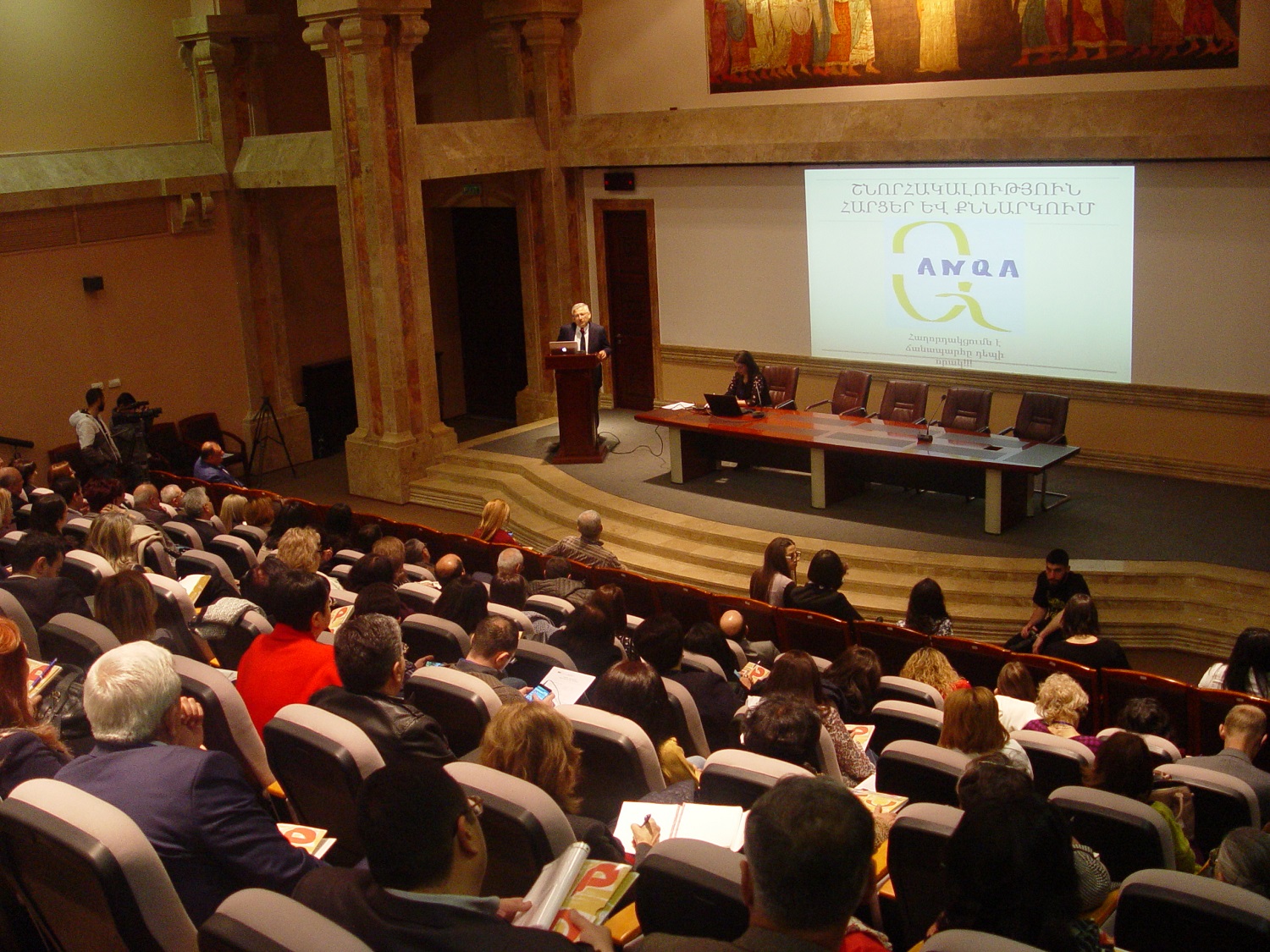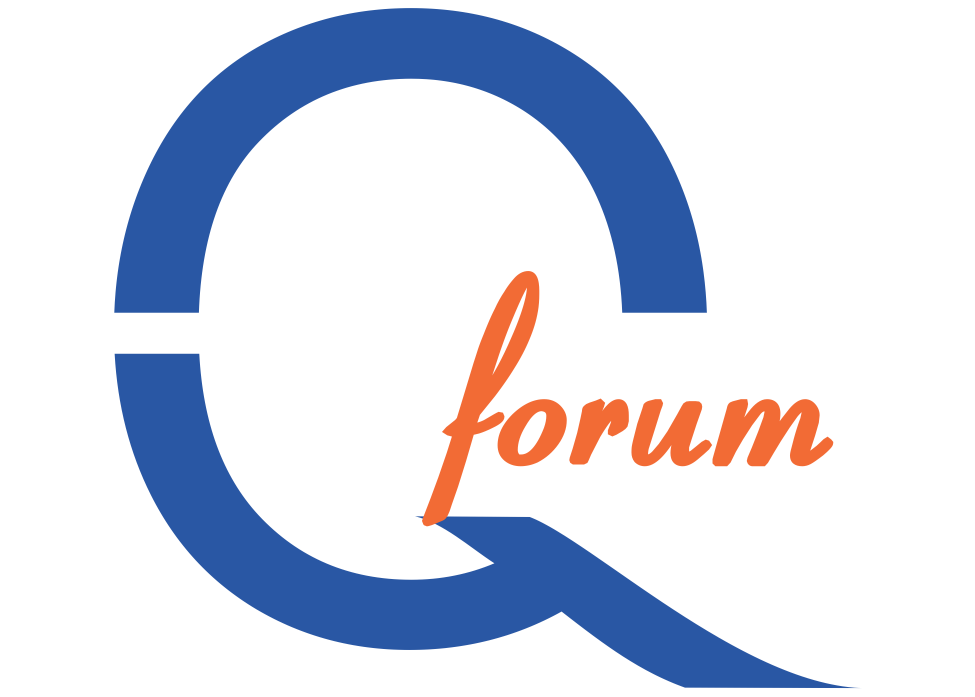#Forum2018: How to improve Educational Program and prepare Educated Professionals

“The 4th Quality Assurance Forum has reached its goal. I believe the forum’s participants will go to their educational institutions, taking with them the results of the two-day debates, keeping the issues raised and trying to find solutions” says Ruben Topchyan, Director of the National Center for Professional Education Quality Assurance (ANQA), summarizing the ‘Education vs. Specialist: Professional Education Today and Tomorrow’ Forum which took place from April 16th to April 17th in Mesrop Mashtots Institute of Ancient Manuscripts (Matenadaran).
Mr. Topchyan mentioned the first stage of the institutional accreditation process which led Higher Education Institutions to change their strategies and internal documents regulating the educational processes. As a result of this process, the quality at the administrative level is ensured and it is now time to work on a system to improve the quality of educational programs.
“A lecturer, who is a major player in the educational process, needs to evaluate the effectiveness of its work and provide mechanisms for preparing specialist who can enter the labor market” says Mr. Topchyan, adding that the Forum sends a message to the lecturers to look for innovative approaches, including assessment for learning, allowing a continuous learning process instead of one where students simply have to take an exam once in a semester and thereby finish the learning process.
“We have invited well-known experts from the Netherlands and the United Kingdom, who have presented their country’s best practices during these two days,” says Mr. Topchyan.
During the two-day Forum, Donald Westerheijden, a specialist at the Center for Higher Education Policy Research at the University of Twente in the Netherlands, presented the European experience on Alignment between the strategies of Higher Education Institutions and Government priorities.
The Dutch specialist told the representatives of the Armenian Higher Education sector about the lessons learned in the Netherlands, along with the best practices in the field of pre-bachelor education. He noted that at first the reforms failed but after introducing some changes, the reforms succeeded.
ANQA Director Ruben Topchyan believes that pre-bachelor education is important for those who want to change their profession. “When people want to change their profession, they apply for Master’s degrees. However, Mater’s degrees have different meanings. This pre-bachelor’s education will enable them to acquire relevant professional skills in a short period of time and improve their qualifications” he says.
It should be noted that pre-bachelor’s professional education is a novelty for the Armenian education system and is included in the new draft Law on Higher Education.
Jennifer Ann Moon, Associate Professor at the Bournemouth University in the United Kingdom and author of eight books and a series of educational management manuals, talked about how educational institutions in her country are interconnected at different levels of education, about learning outcomes of educational programs and the mid-term assessment.
The University-Employer Model, developed and tested by ANQA, was also presented, including the current results. This model will contribute to professionals corresponding to the needs of the labor market. Many participants of the forum asked questions to the speakers on how this model can be applied in their educational institutions.
The Forum participants discussed the ‘Only Educated person vs. Specialist’ topic. According to the majority of the participants, vocational institutions should prepare specialists, but not ignore general education. It was also admitted that schools have a big role in preparing educated persons.
The two-day event also touched upon the expected changes in the second round of the institutional accreditation process and the need for conscious reforms in quality assurance.
The representatives of educational institutions highlighted the professional discussions initiated by ANQA and suggested organizing conferences on quality assurance more than once a year.
